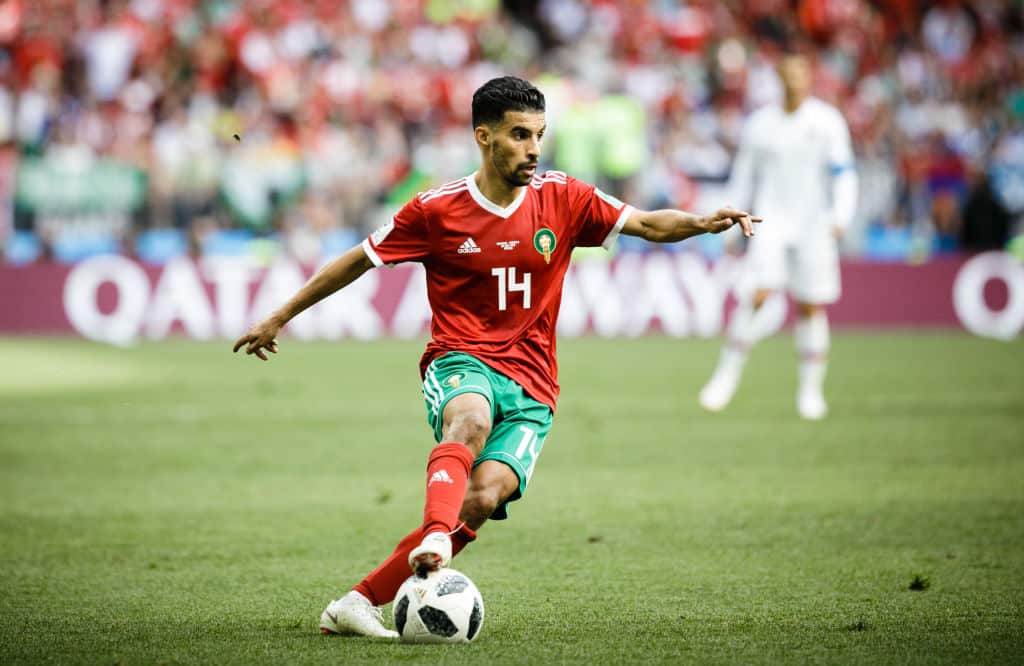Morocco’s historic semifinal feat has paved the way for the continent to compete on the highest level and win.
By Nick Said
The World Cup in Qatar may have been controversial for all sorts of reasons away from football, but there are few who will deny it was the greatest spectacle we have yet seen on the pitch.
There was excitement and drama aplenty, not least from Africa’s five representatives who generally all excelled, even though Morocco’s historic run to the semifinals saw them as the stand-out performers.
Never before had an African team got past the quarterfinals, and victories over Belgium, Spain and Portugal – all teams ranked in the global top 10 – captured the imagination of fans across the world.
So what does this mean for the future of the game in Africa? The continent has already received a boost with the news that they will have a guaranteed nine places – possibly 10 via the playoffs – at the expanded 48-team finals that will be staged in USA, Mexico and Canada in 2026.
“It shows the rich potential we have,” former Bafana Bafana defender David Nyathi, who played all three games for South Africa at the 1998 World Cup in France, tells FORBES AFRICA. “We have always had this potential, but have been let down by a lack of organization in the past. My sense is that teams are becoming more professional and this is closing the gap with the (traditional) major nations.
“In terms of talent, it is there, right across Africa. It just needs to be harnessed properly and then we can achieve great things. I have no doubt.
“Morocco showed that if you play with good organization, confidence and the belief that you can win, then all things are possible. They were excellent through the World Cup.”
President of the Confederation of African Football (CAF), Dr Patrice Motsepe, says the tournament in Qatar should be a launchpad for African teams to excel on the global stage and believes there are many more with the potential to repeat Morocco’s semifinal feat… or even go one better.
“I will never accept that an African nation cannot compete at the highest level in the world,” Motsepe says. “Morocco has opened the door and made us proud. I am confident that in the next World Cup (in 2026), an African nation will go further.
“The main objective is for an African nation to lift the trophy. We have to believe. We have all done things in our lives that at the times appeared very difficult. But we achieved.
“I believe there are 10 nations in Africa right now that can compete on the highest level and win. Maybe even 15. We have to encourage every single one of the 54 nations in Africa (to grow). The future of African football is extremely bright.”
But Motsepe has a rider. Football can only flourish in a country when there is support from government, as was the case in Morocco where major investment drives were made to improve facilities and develop talent. It has paid off handsomely.
“There are so many countries in Africa that do not invest (in their football). Some governments, the support is not what it should be,” he admits. “The success of Morocco is not by coincidence. Many
African countries should learn from them and be inspired by their investment.
“I want to encourage heads of state to do the same. Football gives us dignity… we don’t have the technology many western countries have; they have invested over many years. But we will get there.” Aside from Morocco’s record run, Cameroon claimed a first ever World Cup win for Africa against Brazil, Tunisia beat old foes France and Ghana pulled off an excellent win against South Korea.
Senegal reached the last 16 for the second time as they too showed their potential. It was the first World Cup tournament where all five African competitors won at least one game.
